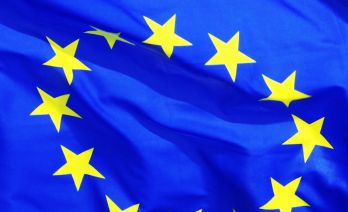The EU marks ten years since the conflict between Russia and Georgia and expresses its unwavering commitment to a peaceful resolution of the conflict in Georgia. The EU reiterates its firm support for Georgia’s sovereignty, independence and territorial integrity within its internationally recognized borders.
The European Union Delegation to the Council of Europe issues the following statement in agreement with the EU Heads of Mission to the Council of Europe.
The EU marks ten years since the conflict between Russia and Georgia and expresses its unwavering commitment to a peaceful resolution of the conflict in Georgia. The EU reiterates its firm support for Georgia’s sovereignty, independence and territorial integrity within its internationally recognized borders.
The EU reiterates its deep concern about the continuing Russian illegal military presence, increased military exercises and infrastructure reinforcements in the Georgian regions of Abkhazia and South Ossetia. Russia’s recognition of the so called independence of South Ossetia and Abkhazia and its aforementioned continued actions demonstrate a lack of respect for the sovereignty and territorial integrity of its neighbours and for the rules based international system. The EU condemns the so-called treaties and deriving agreements, such as the one incorporating military formations of Georgia’s South Ossetia region into armed forces of the Russian Federation. The EU calls on the Russian Federation to fully implement the agreement of 12 August 2008 and the Implementing Measures of 8 September 2008, mediated by the European Union and to provide the EU Monitoring Mission with access to the regions.
The EU expresses its deep concern about the state of play in the Georgian regions of Abkhazia and South Ossetia and for the continuous deterioration of the human rights situation there. The EU calls for a proper investigation into the tragic death of Archil Tatunashvili in February 2018 and for justice to be applied following the killing of Giga Otkhozoria in May 2016. Impunity is a matter of deep concern. The EU is also deeply concerned by an intensification of the so-called borderisation process along the Administrative Boundary Lines (ABLs) and other numerous violations, including gross violations of rights related to freedom of movement, residence and to property, as well as the restriction of education in one’s native language. The EU reconfirms its commitment to remain engaged and involved in stabilization and conflict resolution efforts in Georgia.
The EU strongly supports all ongoing and planned confidence-building activities of the CoE, which are complementary to the efforts of the Co-Chairs of the Geneva International Discussions. The EU will continue to support a wide range of humanitarian aid and human rights protection, development and other co-operation actions in the Georgian region of Abkhazia, in partnership also with international and local NGOs. Human Rights issues should be kept high on the political agenda.
In these ten years, Georgia has strengthened its institutions and undertaken reforms with a view of strengthening its democratic stability. The EU welcomes the package of proposals "A Step to a Better Future" of the Georgian government that can benefit the citizens living on both sides of the Administrative Boundary Lines by facilitating trade, education and mobility. The EU regrets the continued refusal by Russia and participants from Tskhinvali and Sukhumi to engage on the topic of refugees and displaced persons in the Geneva International Discussions. The EU recalls that this topic is at the core of the mandate of the Geneva International Discussions.
The EU regrets that the delegation of the Secretariat, the monitoring bodies and the CoE Human Rights Commissioner have not been granted access to the Georgian regions of Abkhazia and South Ossetia and calls on the authorities exercising effective control to facilitate access to these regions for the relevant bodies of the CoE.










